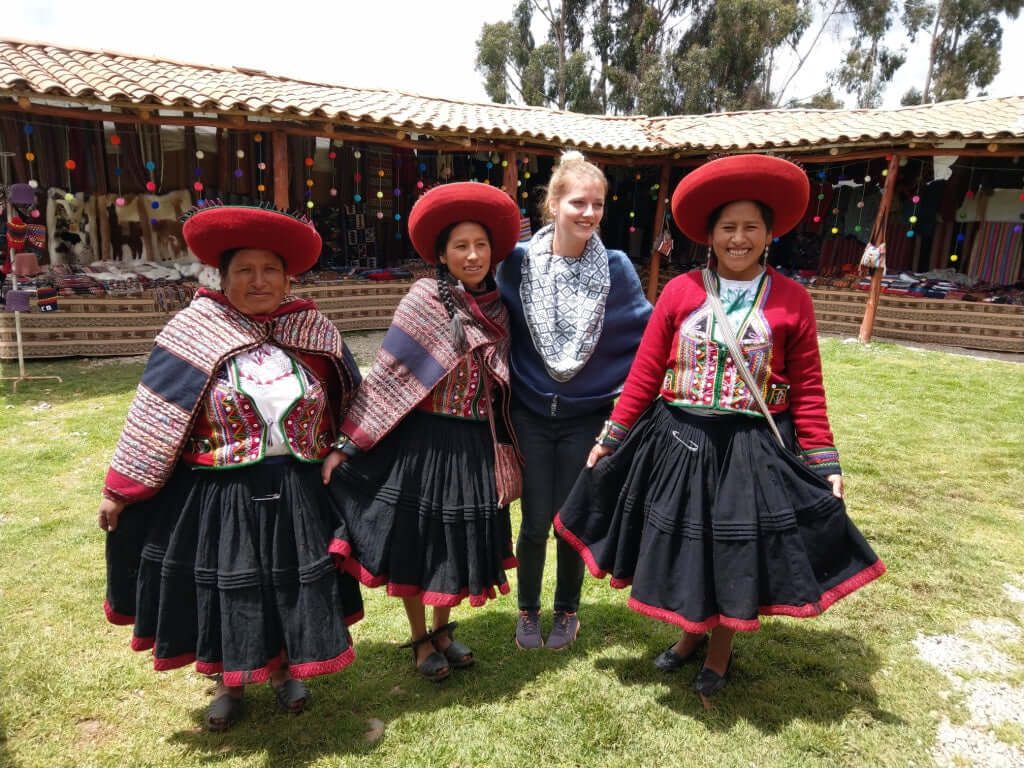Coming from a background in the travel industry, the move into e-commerce, artisan homeware and accessories seems surprising. Can you tell us a bit more?
Definitely! Having caught the travel bug early in life, I wanted to do “something in travel” after graduating high school like so many others. My major in college was Tourism Management followed by a master’s degree in International Development completed in Copenhagen, Denmark.
With a graduate degree in Development Corporation, deep down I've always wanted to contribute to poverty alleviation in some form or another be it working for an international organisation or NGO, a company focused on private sector development or a governmental department such as DFID. However, unless you spent years working on the ground in the developing world or get accepted into one of the sought-after graduate schemes, the way in to the development sector is hard.
So instead, I have been working in the travel industry as a travel advisor for large tour operators, youth travel organisations and adventure travel companies, something I thoroughly enjoy. But with an academic background in development corporation, how could I combine travel, design and development?
When did you first come up with the idea for Alchemista?
Spending much of my time globetrotting, local handicraft traditions have always fascinated me. Artisan homeware, handcrafted jewellery, accessories - often these products reflect a country's history, culture heart and soul. In 2011 while living in Lima, Peru during my graduate studies, I fell in love with the country's traditional craft of jewellery making and weaving . From intricate silver jewellery to alpaca wool products such as scarfs and throws - this is where I believe the seed was planted what was to become Alchemista ten years later.

Visiting a weaver's cooperative in the Sacred Valley, Peru - Why Artisan Homeware?
Then I dug deep into the concept of social entrepreneurship for my master's thesis and explored the impact of social businesses on the improvement on livelihoods in developing countries. I think that was the time I decided that one day I will launch my own social business!
So basically, more than just a handmade product, you're bringing a foreign country's heart and soul into people's living rooms.
Yes exactly. Travellers have brought back souvenirs from distant lands for millennia. A souvenir can have many purposes - a memory, an art piece or something practical. The German word for souvenir is "Andenken", which translates to "think of", a memory from your travels that hopefully induces a good feeling. What I love about artisan homeware is that it can be all three - it can be art, a memory as well as something practical.
Can you talk a little about your mission and values? What's your vision and what do you want to achieve?
My mission is threefold
- Offer customers unique handmade artisan homeware, accessories and jewellery that carry the heart and soul of the country they are made in
- Income generation and the improvement of livelihoods for developing country artisans and communities with a focus on women's empowerment
- Preserve traditional handcraft and arts
Since about the mid-twentieth century the world as has seen an unprecedented shift to consumerism and mass production in almost all types of consumer products - fashion, cosmetics, furniture. Luckily, we seem to be moving away from this "bigger is better" mindset to even a "degrowth" mindset a buzzword the COP26 came up with last year.
The trend is even to go further than "just" focusing on sustainability - not only should consumption be socially and environmentally sustainable and hence protect people and planet, it should moreover be regenerative, and as such restore rather than just protect ecosystems.
Trending hashtags such as #shopsmall, #slowfashion and #whomadethis highlight this movement.
What has been the most effective way of raising awareness for your business?
The most effective way of raising awareness is education. Rather than just putting content out that informs potential customers about existing products, we want to get the message across about “why” you should buy our products. Questions such as “Who made my product?”, “What impact does my purchase have?”, “What materials are used in the making of my product?”, and so on. I think we all want to do good and if you can do so while shopping – perfect!
From soft Peruvian alpaca scarfs, to beaded jewellery from Guatemala, colourful dog collars from Colombia or contemporary seagrass baskets from Rwanda – most artisans in the Global South simply don’t have access to our markets to showcase and sell their incredible products. Alchemista wants to change that.
Do you have a favourite product in your collection?
Tough one! I have chosen every single one myself, so I obviously love them all. Looking at our artisan homeware collection, I really love our hanging planters as well as the colourful seagrass baskets. But I have to say if I had to choose one, I'd go for the woven dog collars handmade by members of the Wayuu tribe in Colombia. I randomly found one of them at a small shop in the town of Salento on my trip to Colombia in early 2020 and got in touch with the organisation working with the Wayuu. I might be prejudiced but I have not seen many similarly beautiful woven collars in the UK.

The Fashion Revolution Foundation was founded in 2013 - Why Artisan Homeware?
If you could have dinner with one person in the world, who would it be and why?
I have always been fascinated with Hildegard von Bingen. Not known to many, she was a German abbess in the 12th century and was active as a writer, composer, philosopher, mystic, visionary and healer who was later canonised. As a woman in the High Middle Ages, she was way ahead of her time, researching holistic medicine and medicinal plants and became well known for her healing powers. She was travelling across what is today Germany preaching and gaining followers (real ones!), which was highly unusual for women at that time. She also invented her own alphabet and language. Simply said she was an early day entrepreneur, author, musician, and doctor who found her passion in many different fields and defied societal norms of her time becoming an inspiration for many. I’m sure she would make an excellent dinner date if she lived today!
Interviewed by: Nina Vasina, Brand Manager


Comments (0)
Back to AlcheMAG